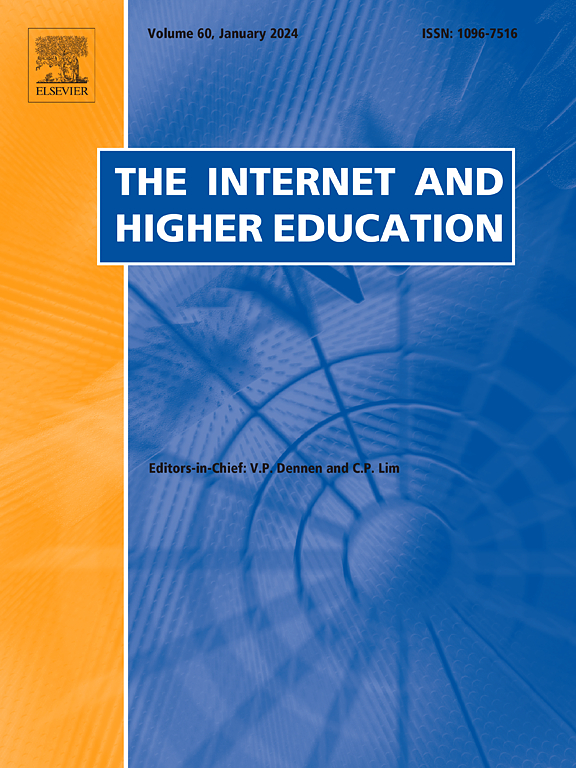The paradox of self-efficacy and technological dependence: Unraveling generative AI's impact on university students' task completion
IF 6.8
1区 教育学
Q1 EDUCATION & EDUCATIONAL RESEARCH
引用次数: 0
Abstract
In the era of proliferating artificial intelligence (AI) technology, generative AI is reshaping educational landscapes, prompting a critical examination of its influence on students' learning processes and their self-efficacy amid concerns over growing technological dependence. This study investigates the nuanced relationship between generative AI use and university students' self-efficacy and technological dependence, illuminating the underlying paradoxes and implications for inclusive education practices. Through a survey of 348 university students, with 200 valid responses analyzed, we uncover the direct and indirect impacts of generative AI usage frequency on AI dependence. Our findings reveal a paradoxical effect: enhanced AI usage significantly amplifies students' confidence and efficiency in learning, yet simultaneously intensifies their dependence on AI. This dual impact both supports and complicates the incorporation of AI technologies into educational settings, underscoring the need for a balanced approach to leveraging AI in teaching and learning. Our study underscores the critical importance of a nuanced understanding of AI's role in education. It highlights the necessity of crafting an educational landscape where technology augments learning processes without compromising independent learning capabilities. By navigating the complex interplay between technological advancement and educational inclusivity, our findings guide the development of AI-assisted learning environments that are not only effective but also equitable and accessible.
自我效能与技术依赖的悖论:解读生成式人工智能对大学生完成任务的影响
在人工智能(AI)技术激增的时代,生成式人工智能正在重塑教育景观,促使人们对其对学生学习过程和自我效能的影响进行批判性审视,同时对日益增长的技术依赖性表示担忧。本研究调查了生成式人工智能的使用与大学生的自我效能感和技术依赖性之间的微妙关系,揭示了潜在的悖论和对全纳教育实践的影响。通过对 348 名大学生的调查(分析了 200 份有效回复),我们揭示了生成式人工智能使用频率对人工智能依赖性的直接和间接影响。我们的研究结果揭示了一种矛盾效应:人工智能使用率的提高显著增强了学生的学习信心和效率,但同时也加剧了他们对人工智能的依赖。这种双重影响既支持了将人工智能技术融入教育环境,也使之变得更加复杂,强调了在教学中利用人工智能需要采取一种平衡的方法。我们的研究强调,细致入微地理解人工智能在教育中的作用至关重要。它强调了精心打造教育环境的必要性,在这样的环境中,技术既能增强学习过程,又不会损害自主学习能力。通过驾驭技术进步与教育包容性之间复杂的相互作用,我们的研究结果为人工智能辅助学习环境的发展提供了指导,这种环境不仅有效,而且公平、无障碍。
本文章由计算机程序翻译,如有差异,请以英文原文为准。
求助全文
约1分钟内获得全文
求助全文
来源期刊

Internet and Higher Education
EDUCATION & EDUCATIONAL RESEARCH-
CiteScore
19.30
自引率
4.70%
发文量
30
审稿时长
40 days
期刊介绍:
The Internet and Higher Education is a quarterly peer-reviewed journal focused on contemporary issues and future trends in online learning, teaching, and administration within post-secondary education. It welcomes contributions from diverse academic disciplines worldwide and provides a platform for theory papers, research studies, critical essays, editorials, reviews, case studies, and social commentary.
 求助内容:
求助内容: 应助结果提醒方式:
应助结果提醒方式:


